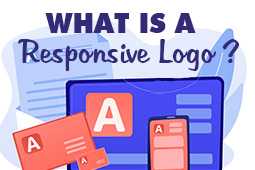People have a particular idea about brands as just labels for certain products of a company. However, not everyone thinks of a brand as a social concept with elements that trigger a person’s emotions and philosophical thoughts. The notion of brands as socially constructed reflect how people produce ideas and images they attach to products and services up for purchasing.
Both brand and consumers build and rebuild these ideas and images. The process of generating an image and defining a name, symbol, and other representations of a brand is what we term as branding. Entrepreneurs, as well as marketers, are in charge of establishing a brand and for determining how would-be consumers and people, in general, should see it and what they have to offer. But then, a brand’s reputation is also immensely dependent on the way customers receive the information that marketers are presenting them.
Start designing your logo now
For marketers and business owners who are aiming for a secure and solid brand positioning, you should be aware by now that selling quality products at competitive prices is no longer enough. The consumers of today, a majority of which belong to Generation Y, are now more selective of the kind of purchases they make compared to the market comprised of the previous generations. With more awareness and sense of empowerment, people nowadays demand more regarding meeting ethical standards that keep a company’s socioeconomic, environmental, and political responsibilities in check. With millennials or Gen Y members, dominating the market as they are the biggest generation that is in its prime spending years, we inevitably experience some structural economic changes. The reality of this change in branding is what brand owners and marketers presently face.
Authenticity as a key branding element
One way to secure and maintain a high brand position is to carry out an authentic branding. These days, many brands are persistently trying to build a connection with their consumers, especially with millennials who we can consider as the game changers of marketing. And so, in developing a productive transactional relationship particularly with this generation of consumers, authenticity has become an invaluable element of branding.
With advertising agencies, whether in print or digital, we also get to see an adjustment in the manner of doing business promotions and pitching of products and services. Many people are no longer as welcoming of direct advertisements as they were before. To be directly advertised to is something consumers feel as inessential in their decision-making processes for their product purchases since they would prefer to come up with an informed decision based on facts and how authentic a brand is when it comes to their goods and services. A lot of people today would rather buy something based on their knowledge of the brand and how that label is projecting itself compared to what it really is rather than just agreeing with what the print ads or digital endorsements are telling them to do.
Hence, what your strategy as a part of today’s marketers should be is to come up with content that is real and genuine when it comes to your brand. Doing so can help you better engage your customers, no matter how odd it may initially seem for brands to exude an air of authenticity when people have become used to consuming information that’s tailored to elevate a product that sometimes does not meet customers’ expectations.
Establishing a brand’s credibility
There are people who, at some point in their lives, doubt if brands can indeed provide the genuineness and truthfulness they look for when making a purchase choice. Questions on authenticity when building connections with consumers may come up. However, local and global brands too are now directing their marketing efforts to do just that. But there is a barrier that impedes the shift to authentic branding, and that is inconsistency. So how can you build your consumers’ interests in a way that your brand will not look pretentious or hard sell?
Branding is a daily process, and it requires hard work even for authentic and already credible brands. To accomplish branding with authenticity, you should have set standards and designs of program materials you can use as your brand’s building blocks or foundation. It is vital that business owners will set aside a considerable amount of time and budget to develop programs they will implement for their brands. And being consistent with the program operation is just as important.
Often, in branding and its grand scheme of things, it is the little items, ideas, and practices that create a brand’s authenticity. Take for example a business that tells you they promptly deliver services in a manner that fits your need. However, if they cannot fulfill their assurance of an on-time and accurate execution, clients will not see them as a reliable and credible brand. On the other hand, when a brand delivers its claims to observe ethical standards and follow legal and moral processes, then consumers will have an image of an honest and trustworthy business.
Authenticity in branding helps develop in customers’ minds a label’s credibility. Authenticity is also about the consistent implementation and reinforcement of what owners and marketers would claim their brands to be, as verified by their consumers.
Sustaining brands with sincerity and integrity
As highlighted earlier, authenticity is more compelling than any other branding efforts. Stories that are honest and genuine resonate well with consumers, especially millennials. People would rather patronize brands that are sincere and truthful about what they offer to the market. But then, asserting your authenticity does not equal to being an authentic brand in reality. There is a simple rule to achieve authenticity, and that is not to declare your brand as authentic but to simply be one.
Social media also plays a vital role in branding as it gives people an immediate and swift access to content as well as the capacity to share materials in an instant with other online users. The opportune moment that social media and the digital age paved for people can also work as a double-edged sword in branding. There are plenty of articles, posts, shares, and tweets generated per minute and hour of every day. The overwhelming amount of data makes it difficult for the ordinary people to determine which of these materials are factual and which are not.
Consequently, the speed and accessibility people have through the social, teamed with data overload can either bolster or negate a brand’s assertion of authenticity. We are at an age and time when people effortlessly, and they do so often, post their opinions and beliefs online. A person’s remarks may sometimes make it to a list of trending topics or may become viral. This quick sharing of thoughts makes it critical for businesses to respond and address issues promptly and to acknowledge any positive branding consumers may generate.
The power of social media is so great that as a marketer, you can also use it to relay the authenticity of your brand. Ads are not uncommon on any of the social media platforms that millions upon millions of people use each day. Some of these ads are a part of a branding approach that shares stories of ordinary citizens, stories that retell brand images. The Johnnie Walker Ode to Lesvos is an excellent example of an ad that convincingly gives life to the idea of the brand. As described by their tagline “keep walking” it encourages consumers with real stories of inspiration, sincerity, and compassion that the brand hopes will be reflective of their character.
Authentic branding involves valuing genuine content
About the potential social media brings, sharing stories of sincerity and having real people advocating for what you have through their personal tales that inspire or give testimony to your brand is valid and worthwhile. There is no better alternative for branding than partnering with people who are willing to stand with you and are disposed to believing what your brand values and what it tries to represent. Time and again we have seen the power of word of mouth and how consumers receive content from people they relate with and trust before making any decision to purchase goods and avail services.
Accountability is just as important
Because of greater accessibility to and the ability to quickly share information, social media has made it possible for consumers to air out complaints conveniently. As a brand, you’ll have to be professional about it by owning up to your mistakes and being humble enough to admit your fault. People will accept apologies instead of lengthy explanations since they understand that nothing is perfect and not everything works seamlessly. To deny any shortcomings on your part is to refuse to accept errors as an inescapable truth in any business endeavor. And this opposes authentic branding.
Content marketing as a core branding strategy
As mentioned earlier, there is value in having actual people who are honestly advocating for your brand. But there is also value in great content that will serve to inform, influence, and at the same time entertain your potential customers. Whether through social media, blog sites, or video-sharing platforms, sharing the kind of material that people can understand will work well even if you’re working with paid content specialists. As long as the people behind the production of the content believe in your brand and are objective enough about their job, then your label can remain as authentic as it can be.
Acknowledge your limitations as a brand
There is a limitation to what your brand can do for the time being. There are thresholds to what you can and should do when building your authenticity. With information on the scope and limitations of your brand, what you can do instead is use this knowledge to refine your marketing strategies. Acknowledge the conditions you are in and push your boundaries by taking advantage of the factors that restrict your brand. After all, authenticity is not just about settling for what your brand currently is but also about progressing and refining into what your brand can be.
Takeaway
Being honest about your business and what it can do for your clients and prospective customers will be more cost-efficient in the long run compared to shelling out money for the maintenance of a facade. Being authentic will also help you avoid certain crisis situations. And it will further give you the boost and freedom a brand needs to move forward and have a huge impact in the industry. Any business or brand that is transparent enough becomes trustworthy and sought-after. These characteristics are what consumers would rather engage with, and so it’s best to give authenticity in branding a try.
Design a cool online logo now





